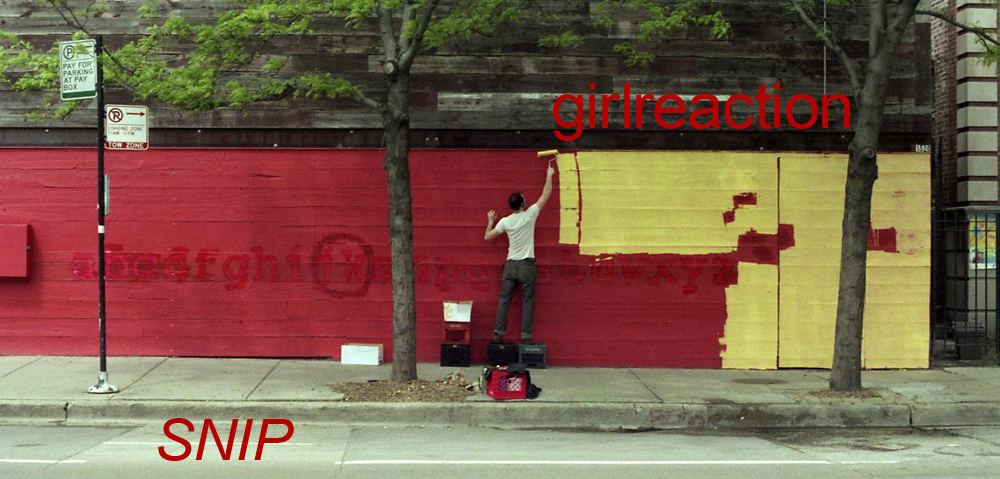Re-read for me; new to Dad. Our June challenge book.
GirlReaction: I lovelovelove this book a completely crazypants amount. I read it shortly after I had moved to Chicago and there were so many great details from my new city in it, places I had been, places I needed to then seek out. For me, it’s incredibly romantic; but some of it may be related to being single for a very very long time–this idea of him being there, he’s off in another time, visiting a different you, but he exists, he is there, you just have to wait… It’s probably a selfish veneer but feels like there’s something very (sadly) (poignantly) romantic about that lonely yearning life.
Also I thought the (admittedly few) times you get to hear about Claire’s art were just FANTASTIC. I could picture her works so vividly. Why can’t someone make me wings? WHY!?! So amazing.
So yeah, I went completely ga-ga for this book and was sending it out as gifts to everyone I knew. Bought it for my parents the Christmas after I read it (maybe 2003?) and waited and waited for them to read it. Eventually Dad saw the movie. While most of my friends who had seen the book didn’t love the movie (Jenni said it was like watching the Cliff Notes), he said he liked it (well enough). Really liked the chemistry between McAdams and Bana–although he hasn’t had any particular urge to see it again.
I find it just as awesome to read the third, fourth…and 18th times around. I really still love it 100%.
DadReaction: Yeah. He did NOT like it. Thought it was an OK book about a relationship, liked some of the scenes, the monopoly game, little things like that. But just thought it was so weird overall. What a weird life for this woman and got to the point where he needed the story to straighten out (2/3 way through). Felt he didn’t need to read about Henry being 105 and Claire being 2 months old…said that every time he turned to the next chapter and read that parenthesis, he just wanted to throw the book across the room!!
He also felt like what if the 15 year old horny teenager Henry shows up when she’s 16. Why didn’t that ever happen? [Of course that can’t happen! When he’s 15 he doesn’t know she exists yet…] He couldn’t finish it. Too frustrated by the time / couldn’t go with the story anymore. Also didn’t like the drawn out stuff around her mom’s death.
SO…after Dad’s reaction to the book, I decided to try the movie. I couldn’t make it past the first 15 minutes!!
A) The movie makes it HIS story, which really takes away the whole point. Yes, in some ways, he is the more interesting or unusual character, but that’s part of the point, it’s not about him! it’s about being his wife, being the one that’s NOT that.
B) The movie makes the accident HIS FAULT!! Noooooooo. That’s just completely wrong. The accident is how he figures out his ability and it’s what saves him but it was NOT the cause. SOOOOO WRONG. And it’s SO irritating when stupid people connected with making movies out of good books make a BAD decision about something like that. How could they possibly think that was something that either 1) needed changing or 2) was a good idea to change? Increasing dramatic tension? Please. This story already has plenty of that. DISAPPROVE.
C) The casting of Gomez is just WRONG. I’m all for Ron Livingston in other roles but SO NOT HERE.
Verdict: I still love this book SO MUCH. Dad did NOT. He likes the movie OK. I could not even get through it. Disagreement reigns! 😉
